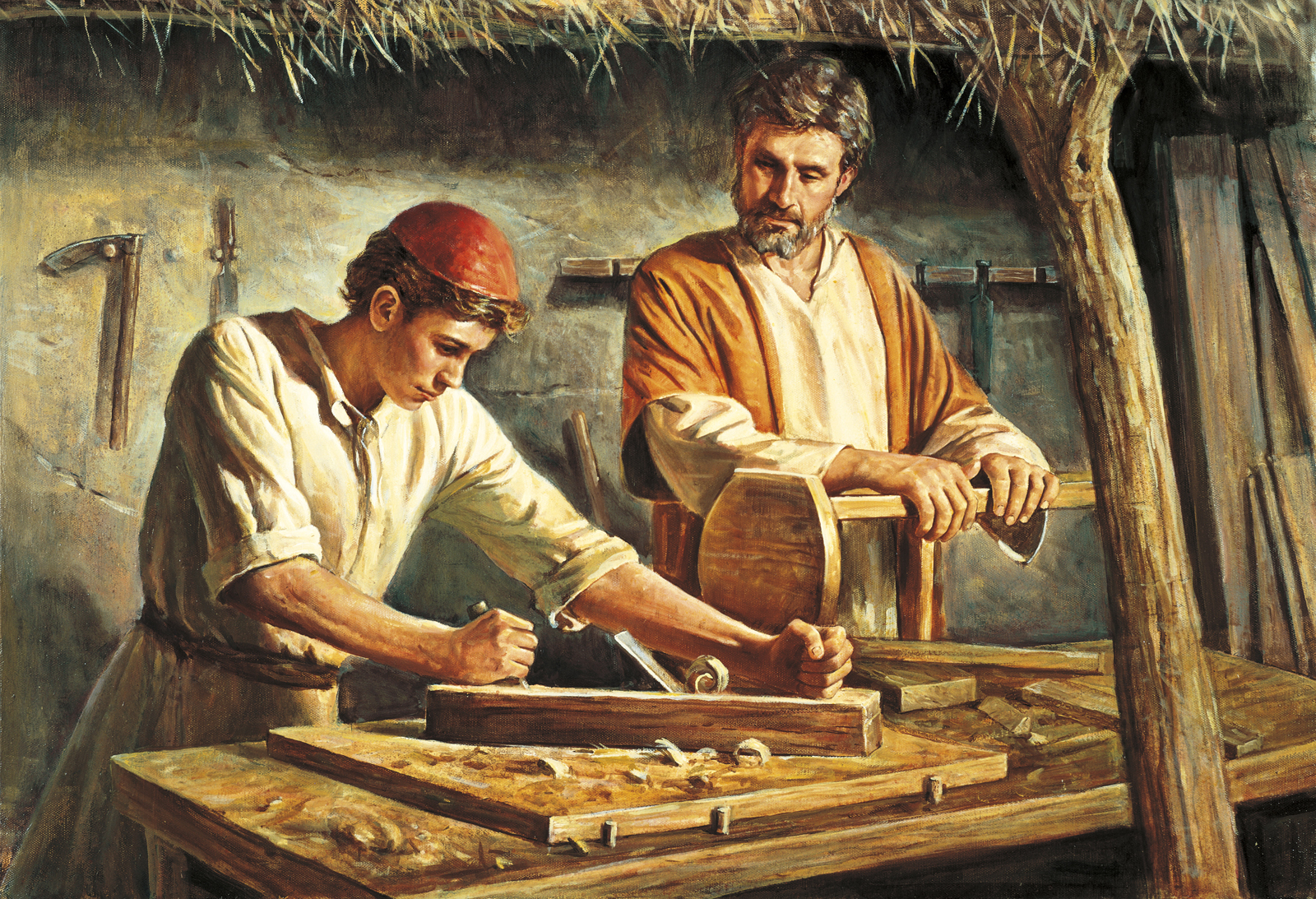Our Savior is called Jesus many times in the scriptures, but here are a few examples:
"And, behold, thou shalt conceive in thy womb, and bring forth a son, and shalt call his name JESUS" (Luke 1:31).
"Behold, I am he who was prepared from the foundation of the world to redeem my people. Behold, I am Jesus Christ" (Ether 3:14).
I found a pretty cool article that talks about the name Jesus Christ. But I really like using the LDS Resource version of WordCruncher so I can get deep into the research on my own. So here's what I learned from my own study:"According to the words of the prophets, and also the word of the angel of God, his name shall be Jesus Christ, the Son of God" (2 Nephi 25:19).
The English version Jesus is translated from the Greek form of the name, Ἰησοῦς (Iēsoús). The Greek translation comes from the Hebrew form, יְהוֹשׁוּעַ (yėhôshûa‘). Interestingly, this word comes from two different places: יהוה (yhvh) and ישׁע (ysh‘).
The first part, יהוה (yhvh), means "(the) self-Existent or Eternal; Jehovah, Jewish national name of God." According to WordCruncher:
"Traditional scholars say it means: the one who is; the existing, ever-living. Many recent scholars say it means: the one bringing into being, lifegiver; giver of existence, creator (e.g., he who creates)."I think that's awesome. In addition to creating our world and everything we know, Jesus created universes beyond our knowledge.
The other part of יְהוֹשׁוּעַ (yėhôshûa‘) comes from ישׁע (ysh‘), which carries the meaning of "properly to be open, wide or free, i.e. (by implication) to be safe; causatively to free or succor." I love this! Drawing from the first half of that definition, Jesus keeps us safe. He gives us a sense of safety and security that we can find nowhere else. His Spirit can provide us with a feeling of safety even in the darkest and most dangerous times of our lives.
Pulling from the second half of that definition, Christ is able to succor (aid or assist) us when we are hopeless and helpless--or even when we're not! Furthermore, He is the reason we are free.
"And under this head ye are made free, and there is no other head whereby ye can be made free. There is no other name given whereby salvation cometh" (Mosiah 5:8, italics added).
"Wherefore, hear my voice and follow me, and you shall be a free people (D&C 38:22, italics added).
Can I just share an awesome connection that I made when I read John 8:32 this time around? We've all heard the phrase "the truth shall make you free" a thousand times. We've heard it in church, at home, and on TV shows about crime and justice (am I right?). But what might the truth mean in this context?"And ye shall know the truth, and the truth shall make you free" (John 8:32, italics added).
Consider this verse, which comes a few chapters later: "Jesus saith unto him, I am the way, the truth, and the life: no man cometh unto the Father, but by me" (John 14:6).
Mind. Blown.
I think that one valid interpretation of John 8:32 is that the truth we read about in this verse is in fact Jesus Christ, who Himself declares that He is the truth! This is further supported by the etymology I outlined earlier, which informs us that the name Jesus comes in part from a Hebrew word that means "causatively to free."
This can be summed up in part by this pseudo-equation (my math-loving husband would be so proud of me):
ישׁע (ysh‘) = to free
יהוה (yhvh) + ישׁע (ysh‘) = Hebrew יְהוֹשׁוּעַ (yėhôshûa‘)
= Greek Ἰησοῦς (Iēsoús)
= English Jesus
= "I am... the truth"
Therefore, "The truth [Jesus] shall make you free."
Maybe it was totally unnecessary to go through all of that in the form of an equation, but I had fun doing it, and I think it provides a nice little summary of what I've discussed in this article.
Well, I'll probably end my post here. I've really enjoyed being able to research names of Christ during this Christmas season. I think I'll actually keep this going and try to research a name of Christ every week until... who knows when. I've learned a lot from doing it, and I hope you've learned something, too.
Before I sign off, I want to share a brief testimony of our Savior. Jesus Christ is our Lord, our Maker, and our King. Because of Him, we have hope. We can be with our families forever, and we can receive "all that [the] Father hath" (D&C 84:38). I am thankful for the Christ Child that was born so many years ago on the rough plains of Bethlehem. The King of Kings, the Lord of Lords, the Savior of the world, the Prince of Peace, was born in the humblest circumstances. He lived and died for us. I am eternally indebted to Him, and I am eternally grateful to Him.






